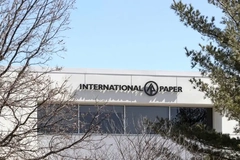Formerra and Danimer Scientific collaborate amid biotechnology policy advances
08 Dec 2022 --- Danimer Scientific is partnering with Formerra to scale the distribution of its environmentally sustainable bioplastics. Karen Heroldt, marketing director at Formerra, says that the companies look forward to providing sustainable solutions for manufacturing processes.
“Our big goal is helping to reorient consumer behavior away from traditional petroleum-based plastics and toward sustainable bioplastics like the ones we’re producing in partnership with Formerra,” Scott Tuten, chief marketing and sustainability officer at Danimer Scientific, tells PackagingInsights.
“Our biopolymers degrade completely in nature or via composting instead of being left behind to pollute our lands and waters indefinitely.”
Prioritizing environment
Spotlighting the evolving regulations and policies around climate action, Tuten shares that the companies are in a “strong position” to help the customers to comply with biotechnology-related policy changes.
“Regulations surrounding sustainability continue to change rapidly across the globe and have been a topic of discussion at this year’s United Nations Framework Convention on Climate Change’s Conference of the Parties (COP27) and Convention on Biological Diversity (COP15),” he says.
“In addition, earlier this year, Danimer’s CEO Stephen Croskrey was privileged to join a White House summit focused on finding bio-based solutions to global economic challenges. We’re glad governments worldwide are aware of the importance of supporting innovations in biotechnology.”
Danimer Scientific’s signature Nodax polymer for packaging is a polyhydroxyalkanoate (PHA) material produced from plant oils using natural fermentation processes and is biodegradable in both soil and marine environments.
 Nodax PHA pellets is produced from canola oil using natural fermentation processes.Biotechnological solutions
Nodax PHA pellets is produced from canola oil using natural fermentation processes.Biotechnological solutions
The company develops and manufactures renewable polymers that can be found in consumer products, including cups, straws, lids, food containers and other single-use items.
“We feel that PHA’s strength and versatility make it a superior choice for various packaging applications that use traditional polymers. Our formulations are currently being used in several products, including straws, takeout containers and one-time-use bags,” Tuten continues.
“Unlike traditional plastic, which can take centuries to degrade, our PHA-based products can degrade in a matter of months under certain conditions.”
Tuten illustrates that Nodax is made using canola oil and has been certified to biodegrade in most environments, including marine, freshwater and soil. In addition, it degrades in industrial composting facilities and home compost bins.
“So not only do its raw materials come from nature, at the end of its life, it returns to nature as well.”
Biden’s executive order
In October, PackagingInsights sat down with Croskrey to discuss his involvement in the new phase of biomanufacturing in the American economy and what it could mean for the global packaging industry.
US President Joe Biden gave an executive order to advance American biotechnology and biomanufacturing. New initiatives and funding were announced to boost the bioplastics market – part of the government’s efforts to reduce carbon emissions, lower prices, strengthen supply chains and promote energy security.
“President Biden’s executive order was intended to support the growth of biotechnology in the US. His view is that we need to create opportunities in-house. The assumption is that many products will be made from bio-based materials currently made from other materials,” concludes Croskrey.
By Radhika Sikaria












